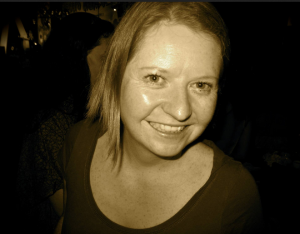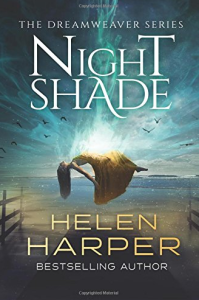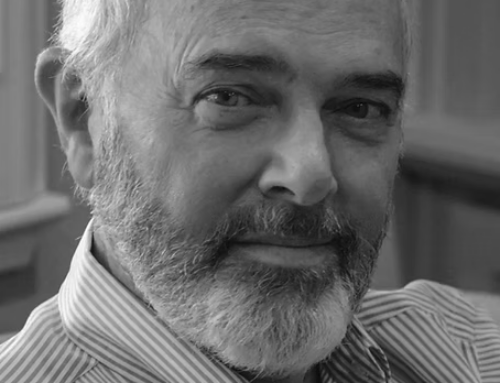
Helen Harper
Tell us something about your book. The basics: what’s it about?
Night Shade is the first book in the Dreamweaver trilogy. Essentially, it follows a young woman called Zoe who suffers from agoraphobia and is terrified from both going outside and having strangers visit her home. When a tragedy happens right on her very doorstep, however, something inside her is unlocked and she realises she doesn’t need to leave her home – simply by falling asleep she can enter the Dream Lands, a strange place where it seems almost anything can happen. The first person she encounters there is a handsome silver eyed man called Dante. His story becomes entangled with hers, largely because the Dream Lands are ruled by a sinister group called the Department … and the Department will stop at nothing if it means they can control people’s dreams.
How did you come to self-publish? Did you try to get published traditionally?
It started purely as a hobby. It didn’t even occur to me to consider either self-publishing or the traditional route, I just began spending my evenings writing the sort of books that I wanted to read. On December 27, 2012 (I remember it vividly!) on a whim, I decided I had nothing to lose by uploading the two books I’d written onto Amazon. I tend to be a very spur of the moment person! I think the decision to self-publish had as much to do with the post-Christmas lull as anything else. I had very low expectations. In fact, I was so convinced nothing would come of it that I didn’t tell a soul about them. I think in January 2013, I sold less than twenty copies. I was utterly giddy with excitement that anyone at all had chosen to pick them up – and that was nothing compared to the buzz of receiving my first review! The month after that, it was a few hundred copies. Then it was a few thousand. Through what I genuinely think has to have been sheer luck and word-of-mouth, six months after I clicked ‘publish’ I’d sold tens of thousands of copies. It was unbelievable.
What self-publishing service did you use? Happy with the service?
I did it all myself initially. These days things are very different and I hire a wonderful editor from a UK based company called 2QT and get my book covers professionally made by the fabulously gifted Clarissa Yeo at Yocla Designs.
What avenues have you taken to market the book? Have you gotten reviews, interviews, TV, print media coverage?
For the most part, I use social media and online advertising. Television and print media seem out of my reach as a self-published author but never say never!
What drove you to write this particular book?
It started with Zoe, the main character. For me, characters are vitally important – they have to seem as real to me as my best friends are. After quitting my job to write full time, I quickly realised how much more of an effort I had to make to interact with people. It was far too easy to stay indoors all day and write. I could do my shopping online, send emails, complete marketing and contact everyone I needed to – and I didn’t have to ever open my mouth to speak to a single real soul. I’m a writer so I’m pretty much a natural introvert as it is!
In any case, it got me thinking about what it would be like to have no choice other than to be trapped inside the four walls of your home. How would you ever find a way to escape your own head? That’s when I considered how powerful dreams could be to such a person. Once I started researching them, I realised how something that I take for granted can have a huge influence on what people say and do in their day to day lives. And that’s before you even start thinking about terrible afflictions such as night terrors, sleep paralysis and narcolepsy.
Is the book in any one particular genre? Is it a genre that’s familiar to you?
Typically, I write urban fantasy and Night Shade is certainly influenced heavily by that genre although it’s possibly very different to what readers expect. There aren’t werewolves or vampires like there are in my other books but there is the fantastical, imaginative edge that I think is an important part of the genre. Magical realism places a vital role in literature of all sorts. Really, it just depends how far your imagination can take you!

I’m a very eclectic reader so it’s difficult to pinpoint one or two writers. For me, it’s like asking what my favourite book is – there are just so many that it’s impossible to choose! I suppose I’d have to say modern urban fantasy authors, especially those with strong female protagonists, such as Ilona Andrews, Laurell K. Hamilton and Patricia Briggs. But then again, I am a huge admirer of the writing style of Stephen King and Neil Gaiman and the fantastic leaps that they are able to take with fiction has been a massive influence.
What’s your writing regimen? Any tips for keeping focused?
I write best in the mornings. It suits me perfectly because I would also loll around in bed all day if I could so I have plenty of reasons to get up! I try and start most days with a session at they gym. I think it helps kick start me into gear. I used to write at home but I find it becomes too easy to get distracted by the television or the cats or the internet so these days I often take myself out and sit in a café where I can order copious amounts of coffee. I even try to choose cafes where I know I won’t be able to get wifi access. Then I have no excuse but to completely immerse myself in the world I’m creating.
Would you self-publish again?
No brainer! Yes, I definitely would – and indeed will. The fifth book in my vampire PI series is going to be released at the end of November. Then, in January, I have a brand new magical series taking place in the Highlands of Scotland which is coming out. The first book is called Gifted Thief and I’m incredibly excited about it!
Any final words of advice for those looking to self-publish?
Don’t ever think you know it all or that you can’t learn from someone else. This industry changes and adapts itself almost daily and, if you’re self-publishing, you have to keep up. Making friends with other similar authors can be hugely beneficial, not just for collaborating on box sets but for sympathetic ears and sound advice from other people who really know what you’re experiencing and what it’s like to be ‘out there’. Finally, you have to read. If you’re not a reader, you can never be a writer.
Get an Editorial Review | Get Amazon Sales & Reviews | Get Edited | Get Beta Readers | Enter the SPR Book Awards | Other Marketing Services






















Leave A Comment